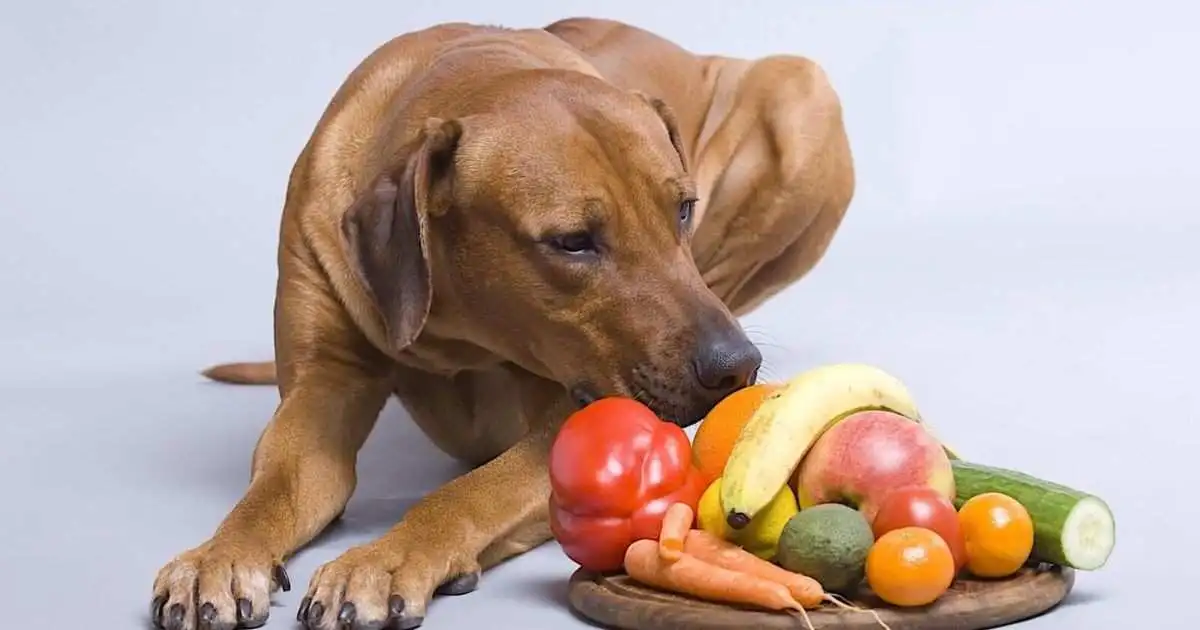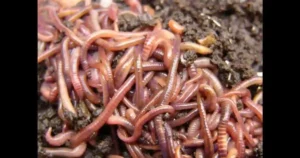Dogs, our loyal and affectionate companions, have shared their lives with humans for thousands of years. While primarily carnivorous, dogs have evolved alongside humans, adapting to various diets that include fruits and vegetables.
This adaptability, however, doesn’t mean all human foods are safe for dogs. Their digestive systems are distinct from ours, and some foods can cause them harm despite being nutritious for humans.
Understanding which fruits are beneficial and which are harmful is essential for ensuring your furry friend’s health and happiness.
Fruits are a source of natural vitamins, minerals, and fiber, and many are safe for dogs in moderation. However, some fruits contain substances that can be toxic or difficult for dogs to digest
Fruits Dogs Can Eat

Apples (Seedless)
Apples are a crunchy and nutritious treat for dogs. They are rich in vitamins A and C and provide dietary fiber, which supports digestion. However, always remove the seeds and core, as apple seeds contain cyanide, a toxic compound.
Bananas
Bananas are a favorite among dogs for their natural sweetness and soft texture. They are a good source of potassium, vitamin C, and vitamin B6. Feed them in moderation due to their high sugar content.
Blueberries
Blueberries are a superfood for dogs, packed with antioxidants and vitamin C. These small, bite-sized fruits are excellent for promoting healthy immune systems and combating free radicals.
Cantaloupe
Cantaloupe is a hydrating fruit that provides dogs with vitamins A and C. It’s low in calories and high in water content, making it a refreshing snack on hot days. Remove the seeds and rind before feeding.
Coconut
Coconut, including coconut oil, is known for its health benefits. It contains lauric acid, which has antibacterial and antifungal properties. Ensure the shell is removed, as it can be a choking hazard.
Cranberries
Cranberries are safe for dogs in small amounts and are known for their ability to support urinary tract health. Avoid sweetened or processed cranberries, as they often contain harmful additives.
Cucumbers
Cucumbers are an excellent low-calorie snack that helps keep dogs hydrated. They are rich in potassium and magnesium, promoting healthy muscles and nerves.
Kiwis
Kiwis are a lesser-known fruit that dogs can enjoy. Packed with vitamin C and fiber, they’re great for boosting the immune system. Peel the kiwi and serve it in small pieces.
Mangoes
Mangoes are a tropical delight that dogs can eat in moderation. They are a source of vitamin A, potassium, and beta-carotene. Always remove the pit, as it contains cyanide and can pose a choking hazard.
Oranges
Oranges are safe for dogs but should be given sparingly due to their acidity and sugar content. They are a good source of vitamin C and can be a zesty treat. Remove the seeds and peel before serving.
Peaches (Pit Removed)
Peaches are rich in vitamins A and C and provide a sweet treat for dogs. Always remove the pit, as it contains cyanide and is a choking hazard.
Pears
Pears are a fiber-rich fruit that dogs can enjoy. They contain vitamin C and copper. Like apples, the seeds and core should be removed before feeding.
Pineapple
Pineapple is a tropical fruit loaded with vitamins and enzymes that aid digestion. Serve it in small chunks, and avoid the tough core and spiky skin.
Pumpkin
Pumpkin is a fantastic addition to a dog’s diet. It’s a source of fiber and beta-carotene, which supports digestive health. Ensure it’s plain and free of added sugars or spices.
Raspberries
Raspberries are low in sugar and high in fiber and antioxidants. They make a great occasional treat for dogs but should be given in moderation, as they contain natural xylitol, which can be harmful in large quantities.
Strawberries
Strawberries are a sweet and juicy treat that provides dogs with vitamin C and fiber. They also contain an enzyme that may help whiten your dog’s teeth.
Watermelon (Seedless)
Watermelon is a hydrating fruit, perfect for summer days. It is rich in vitamins A, B6, and C and low in calories. Ensure it’s seedless, as seeds can block the intestines, and remove the rind before serving.
Fruits Dogs Should Not Eat

Avocado
Avocado contains persin, a fungicidal toxin that can cause vomiting and diarrhea in dogs. While the fleshy part contains lower levels of persin, it’s best to avoid avocado altogether.
Cherries
Cherries are dangerous for dogs because their pits, stems, and leaves contain cyanide. Even small amounts can lead to poisoning, and the pits can also cause intestinal blockages.
Grapes
Grapes and raisins are highly toxic to dogs and can lead to kidney failure, even in small quantities. Avoid these fruits entirely to keep your dog safe.
Lemons
Lemons are not suitable for dogs due to their high acidity. They can cause gastrointestinal upset and discomfort.
Limes
Like lemons, limes are too acidic for dogs and can cause similar digestive issues.
Plums
Plums are harmful to dogs because of their pits, which contain cyanide. The flesh of the fruit is also high in sugar, making it unsuitable for regular consumption.
Tomatoes
While ripe tomatoes are less toxic, green tomatoes and tomato plants contain solanine, a substance that can be harmful to dogs. It’s best to err on the side of caution and avoid tomatoes altogether.
Conclusion
Providing your dog with a balanced diet that includes safe fruits can greatly enhance their overall well-being. Fruits like apples, blueberries, and watermelons offer health benefits when served in moderation, while others, such as grapes and cherries, should be avoided due to their toxic effects.
Always introduce new fruits gradually and monitor your pet for any adverse reactions. When in doubt, consult your veterinarian to ensure the safety of your furry companion.
By being mindful of what fruits your dog can and cannot eat, you can make informed decisions to support their health and happiness.
FAQs
Can dogs eat dried fruits?
Dried fruits are not recommended for dogs as they are often high in sugar and may contain preservatives or additives harmful to dogs.
What should I do if my dog eats a toxic fruit?
If your dog consumes a toxic fruit, contact your veterinarian immediately or call a pet poison control hotline for guidance.
Are there any fruits that are universally safe for all dogs?
While many fruits like blueberries and apples are safe for most dogs, individual allergies or sensitivities may vary. Always introduce fruits slowly and in small amounts.
How often can I give my dog fruits?
Fruits should be given as occasional treats, making up no more than 10% of your dog’s daily caloric intake. Too much fruit can lead to digestive upset or weight gain.

Robert Harris is a dedicated animal enthusiast and expert in the pet and wildlife niche. With extensive experience in pet care, wildlife studies, and blogging, James offers practical tips, insightful advice, and heartwarming stories to help pet owners create stronger connections with their furry, feathered and scaly friends.








